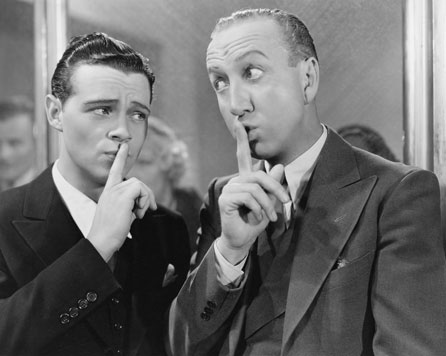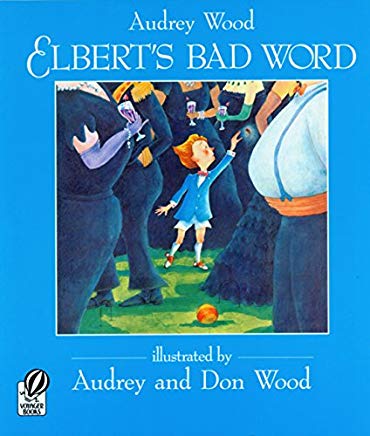The Blog
Blog Entry
Blistering Hop Toads

The singer Bono of U2 once described the sonic affect of swearing as potentially like percussion, and I think that’s about right, unless you’re a f*****g idiot about it. Which a lot of people are who substitute the meaning with the modifier till there’s hardly any music left to hear.
The offending utterance in Elbert’s Bad Word is literally something grubby and bristly that gets loose at one of those parties I’m never invited to where mustachioed waiters carry around trays of all-you-can-eat deviled eggs and purple spritzers, lots of people wear monocles, and a bare-backed soprano is the feature performer. Also there is croquet, a necessary diversion when you are the creator of The Napping House, where every action must always have its equal and opposite reaction. Here that includes – but does not end with – the mallet which lands with such force upon young Elbert’s big toe that the grubby, bristly little beast which he secretly pocketed a little earlier becomes a party-crashing sasquatch.
“We do not say bad words,” says Elbert’s imperiously made-up mother, marching him off to the lavatory in his knee socks and bow-tie and F. Scott Fitzgeraldish hair. In fact, there are more than a few angles here where Elbert resembles that wordy, great romantic, none more than in profile scrubbing his mouth out with soap. (The bad word merely escapes to his shoulder, “snickering wickedly.”)
Still, I hardly think the problem here is that we do, or do not, say bad words, but that we do not use enough words generally. Elbert in due course encounters a practicing wizard (in real life, a gardener) who introduces him to a drawer full of sparkling alternatives. One oboe solo later, one tangled boa, plus one flying chocolate mousse, and poor mallet-magnet Elbert is fatefully handed an opportunity to redeem himself – and, not for nothing, the party.
“RATS AND BLUES BLAZES!” he hollers, among other infuriated riffs, all of them crackling and musical and poetic, but random? Do you think? Compared with the usual standbys? Here in this language at the intersection of so many others, doesn’t it feel like a waste of such outrage not to use every instrument in the kit?

